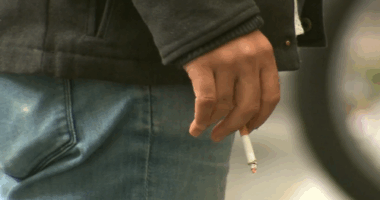Share this @internewscast.com
“The closest analogy in your everyday life would be the MRI scan at a hospital, where radio waves are directed at you as the subject, and the returning radio waves help create the scan’s image. We do something along those lines,” Cutmore explained.
But the team was only halfway there.

Princess Diana visited a minefield in Huambo, in Angola. Credit: AP
TNT, the most common explosive used in landmines, was successfully identified in laboratory testing in Australia last month — a major breakthrough.
The team hopes the lab results will translate to reality.
Dual explosive mine detector in development
Edwards remarked: “As I mentioned, there’s no single solution, but it is definitely a breakthrough. It’s exciting, absolutely. And as an Australian, I must say, it’s quite satisfying to see this Australian contribution having an impact globally, and I’d love to see them utilized in Ukraine.”












